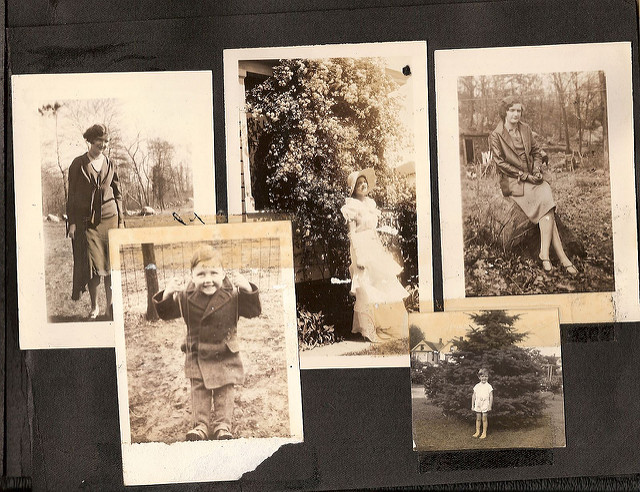Hybrid Poetry by Elisabeth Weiss
Winner of the 2015 Talking Writing Prize for Hybrid Poetry

What’s madness but nobility of soul
At odds with circumstance?
— Theodore Roethke
|
|
KINOT 1 Anna bows her head and studies her nails, The New York Anna desired was full of
|
From Wikipedia: The thirty-five years beginning 1881 experienced the largest wave These immigrants tended to be young and relatively irreligious, The German Jews, who were often wealthy by this time, did not |
|
From Mosby’s Medical Dictionary: postpartum depression an abnormal psychiatric condition |
KINOT 2 Holding her cordovan lizard pocketbook against The transcriber sits to her right with a memo pad How are you feeling today, Mrs. Breittholz? Well, I feel a little bit more shaky than I did when I came Tell me why you came. Why I came here. They told me they were sending me to Who told you that? The nurses. Where? In Bellevue Hospital. Anna shifts her weight and crosses her Anna knew she was happy to be alone and From “The Unfinished
Promise of Willowbrook: Twenty-Five Years of Unnecessary Despair for New Yorkers Living with Mental Illnesses”: In 1965, U.S. Senator Robert Kennedy visited the now-infamous Willowbrook School on Staten Island, unannounced. Afterward, he declared the “wards were less comfortable and cheerful than the cage in which we put animals in the zoo.” shoulders out,
|
From supportedbirth.com: The battle for Twilight Sleep This was the period when the At the same time, the anti- The cause of Twilight Sleep dementia praecox
|
|
|
KINOT 3 I That morning I got up with an awfully funny feeling My mother’s fingernails
were thick and healthy and always long. She asked the manicurist to leave nail polish at the little half moons above her cuticles. When she held my hand, I would bring her hand to my mouth and bite her nails. “Stop it,” she would exclaim. Later, I would do it again. And those boys throwing cherry pits into my windows, II
|
|
|
|
KINOT 4 When the pinpricks began I knew it was My husband is not my husband. |
For these things I weep
for I am in distress
my innards burn
my heart is turned within me
And my heart is faint
He dragged me from the path and mangled me and left me without help
They mock me in song all day long
What can I say for you?
With what can I compare you, daughter?
To what can I liken you, that I might comfort you?
I am in torment within
My heart is poured out on the ground

|
From auschwitz.dk: But the Chiger family miraculously |
KINOT 5 To the same hotel to which we have referred there is a
Steamship moguls and steel barons built
|
|
|
My Mother’s Laughter Her deep guttural laugh, head |
KINOT 6 In view of the fact that her husband is in comfortable circumstances People move so slowly around me
|
|
|
|
KINOT 7 Located in the grounds of Creedmoor Psychiatric Center, the Living Look how the art studio The world can’t offer sympathy When Freud came to us in 1919 They weren’t for me. From Bolek Greczynski, I am trapped,
|
|
|
From Wikipedia: |
KINOT 8 The delusional formation, impatient. She sits by the window, shrugs her shoulders, Diagnosis: She has an obvious, undisclosed
|
For Anna All those footsteps on the seashore. Last year I thought I put you away but you kept reappearing, Now I let you stay.
Fall 1976 |
|
KINOT 9 What happened to Anna was beyond her control. Records for Anna between 1931 to 1966 do not exist. On December 16, 1966, Anna’s status was changed In 1973, she was released, unwillingly, to the Anna lived another two years. Her husband stopped visiting her after Family There were no other records of parole.
|
From E. Fuller Torrey: Deinstitutionalization is the name given to the policy of moving severely mentally ill people out of large state institutions and then closing part or all of those institutions; it has been a major contributing factor to the mental illness crisis…. Deinstitutionalization began in 1955 with the widespread introduction of chlorpromazine, commonly known as Thorazine, the first effective antipsychotic medication, and received a major impetus 10 years later with the enactment of federal Medicaid and Medicare. Deinstitutionalization has two parts: the moving of the severely mentally ill out of the state institutions, and the closing of part or all of those institutions… The magnitude of deinstitutionalization of the severely mentally ill qualifies it as one of the largest social experiments in American history. Deinstitutionalization was largely a failure. Drugs were used as a panacea. Funding often didn’t reach the community level, and a percentage of the mentally ill became homeless or imprisioned. |
Publishing Information
- Theodore Roethke: Lines from “In a Dark Time,” The Collected Poems of Theodore Roethke (Doubleday, 1966).
- Kinot 1 box: Excerpt from “History of the Jews in New York City,” Wikipedia, February 2016.
- Kinot 2: How are you feeling today, Mrs. Breittholz? and other italicized lines are from the Creedmoor State Hospital patient records for Anna (author’s personal collection).
- Kinot 2 left and right columns: Quote that begins "Queens's Creedmoor State had its humble beginnings" is from "Creedmoor State Hospital, Building 25" by Richard Nickel, The Kingston Lounge, March 31, 2008.
- Kinot 2 first box: Definition is from Mosby’s Medical Dictionary, eighth edition (Elsevier, 2008).
- Kinot 2 second box: Excerpt from “Twilight Sleep,” Supported Birth (supportedbirth.com) website.
- Kinot 2 third box: Based on reference to “Dementia Praecox” in Oxford English Dictionary.
- Kinot 2 fourth box: Excerpt from “The Unfinished Promise of Willowbrook: Twenty-Five Years of Unnecessary Despair for New Yorkers Living with Mental Illnesses ,” a policy paper by the Mental Health Association in New York State, 2002.
- Kinot 2 and 3 columns: Quote about Rivera's expose is from "Willowbrook State School," Wikipedia, February 2016.
- Kinot 3 box: Text by the author.
- Kinot 4 Biblical passages: Excerpted and adapted from “Lamentations 1-2,” The Complete Jewish Bible on the Chabad.org website.
- Kinot 5 Lakewood Resort ad: The author recorded this ad text while doing research for “The Anna Fragments,” but hasn’t been able to track down the original reference.
- Kinot 5 left column: High moments. They go round and round in me. Lines are by Carl Sandburg from “High Moments” in The Complete Poems of Carl Sandburg (Harcourt, 1970).
- Kinot 5 right column: Lines by Tu Fu are from “Written on the Wall at Chang’s Hermitage,” translated by David Hinton, in The New Directions Anthology of Classical Chinese Poetry, edited by Eliot Weinberger (New Directions, 2003).
- Kinot 5 box: Excerpt from “A Miracle in the Sewers” about the Chiger family in the Lvov ghetto on the Holocaust (auschwitz.dk) website.
- Kinot 6 opening: From the Creedmoor State Hospital patient records for Anna (author’s personal collection).
- Kinot 6 box: Text by the author.
- Kinot 7 opening and box: Excerpts from White Sale, Revolution Denied: From the Living Museum at Creedmoor Psychiatric Center by Bolek Greczynski, October 29-December 1, 1990, Amelie A. Wallace Gallery, State University of New York/College at Old Westbury (The Gallery, 1990).
- Kinot 8: The italicized "Diagnosis" line is from the Creedmoor State Hospital patient records for Anna (author’s personal collection).
- Kinot 8 first box: Excerpt from “Female Hysteria,” Wikipedia, February 2016.
- Kinot 8 second box: “For Anna,” unpublished poem by the author, 1976.
- Kinot 9 box: Excerpt from Out of the Shadows: Confronting America's Mental Illness Crisis by E. Fuller Torrey (John Wiley & Sons, 1997), reprinted on the PBS “Frontline” website under “Deinstitutionalization: A Psychiatric ‘Titanic.’” Italicized commentary by the author.
Art Information
- "album80004" © Janel; Creative Commons license.
 Elisabeth Weiss teaches writing at Salem State University in Salem, Massachusetts. She’s taught poetry in preschools, prisons, and nursing homes, as well as to the intellectually disabled.
Elisabeth Weiss teaches writing at Salem State University in Salem, Massachusetts. She’s taught poetry in preschools, prisons, and nursing homes, as well as to the intellectually disabled.
Her poems have appeared in many journals including London’s Poetry Review, Porch, Crazyhorse, Ibbetson Street Review, Birmingham Poetry Review, Muddy River Poetry Review, and Paterson Literary Review. Her chapbook, The Caretaker’s Lament, was published by Finishing Line Press. For more information, visit Elisabeth Weiss's website.
On the hybrid nature of her piece, Weiss says:
'The Anna Fragments' began as a nine-part poem. It deals with how my grandmother’s life was shaped by her times. I added the preface as sidebar commentary and then added further definitions and explanations to enlarge and expand her story. The text resembles a page of the Talmud, which is how learned rabbis argued texts across centuries. Last summer at the Millay Colony in Austerlitz, New York, I completed the narrative by extending it to women in the following two generations. The combination of research, poetry, fiction, and creative nonfiction mirrors Anna’s schizophrenic world, but I also hope it gives voice, in many different ways, to a woman who was silenced.
